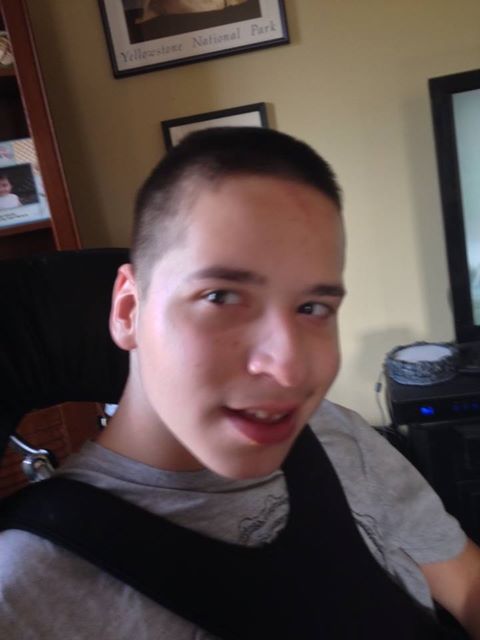In July of 1999, Andrew Ablondi was born to two loving and excited first-time parents. Although the pregnancy was uneventful, the delivery was long and Andrew arrived with a misshapen head, a swollen and bruised face, and he struggled to breathe. On his second day, Rachel, Andrew’s mother, had trouble feeding. As soon as she called the nurses in for help, Andrew turned blue and was rushed to the NICU. As Rachel was discharged from the hospital she also began the journey as a caregiver for a medically fragile child.
Andrew had bled into his head in several different areas, seemingly without reason. After a long two-week stay, Andrew was released to his new home to his mother and father. There, he cried constantly and could not be soothed. The Ablondi’s took their son to a specialist after noticing that Andrew was failing to reach developmental milestones.
On Andrew’s first birthday, the Ablondi’s had planned a wonderful celebration, but the day took a devastating turn when Andrew’s body twitched erratically for a dreadfully long twenty minutes. They rushed him to the hospital, where an EEG showed that Andrew had a severe form of epilepsy, Infantile Spasms (also called West Syndrome), which doctors explained would likely lead to severe mental retardation. The Ablondi’s, now devastated and petrified, opted to treat Andrew’s Infantile Spasms in a non-aggressive way but Andrew continued to have seizures, and the epilepsy progressing into Lennox-Gestaut Syndrome (LGS). LGS is a severe epilepsy disorder in children that is characterized by multiple seizures, a distinctive brain wave pattern, and cognitive or behavioral abnormalities.
Since Andrew’s diagnosis, he has only achieved seizure freedom for a two-month period. Unfortunately, Andrew is now confined to a wheel chair and experiences roughly 10 seizures per day. Daily seizures are both taxing physically and mentally on the Ablondi’s, but they continue to search for new avenues for improvement. Andrew and the Ablondi’s offer guidance to families that are newly diagnosed and are proud advocates for rare disease patients.
For more information on Lennox-Gestaut Syndrome, please visit our member organization, Intractable Childhood Epilepsy Alliance (ICE).






